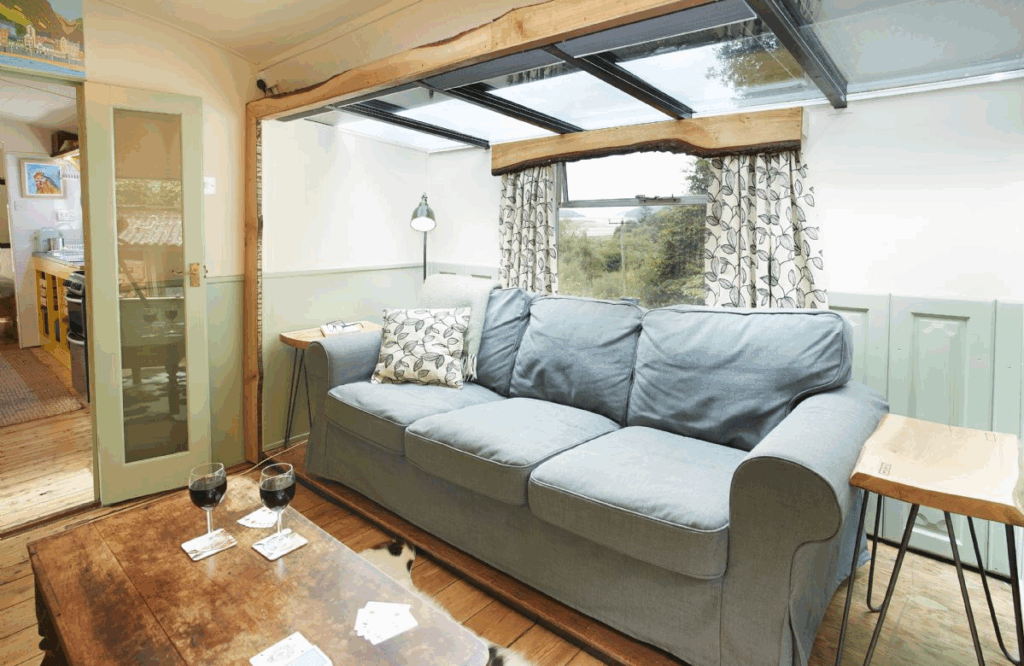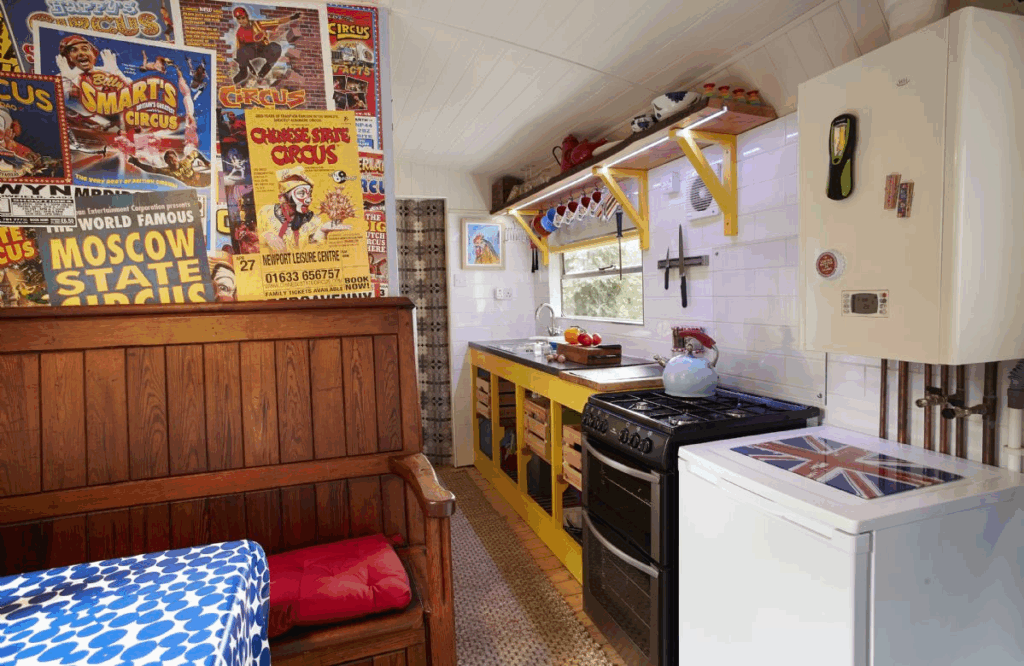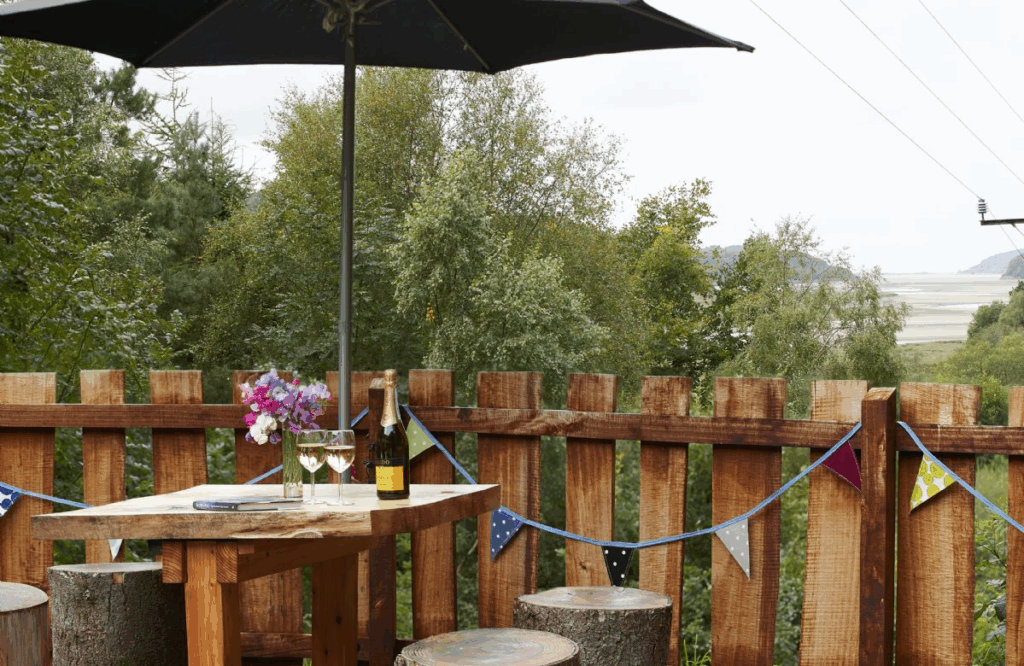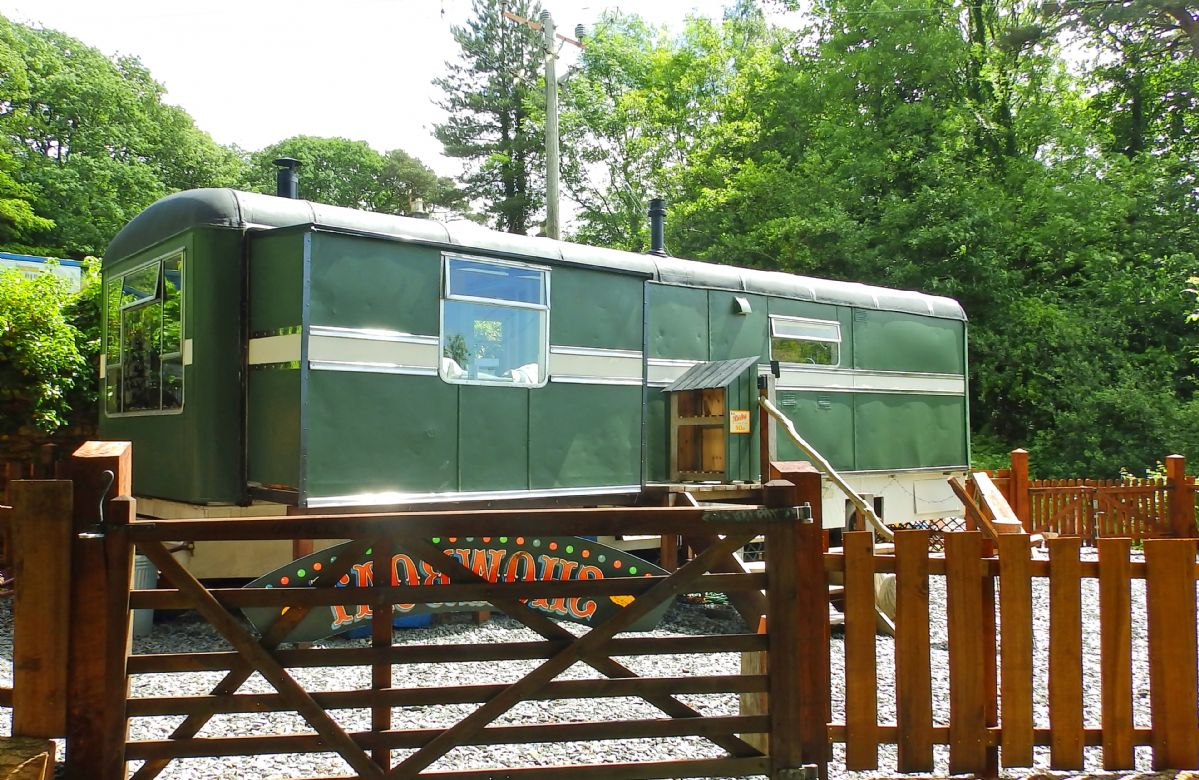The Showman’s Wagon, a restored 1950s fairground van overlooking the Mawddach Estuary in North Wales, offers an example of how vintage design and modern amenities can merge to create a distinctive glamping experience.
The property, which accommodates two guests, sits between Dolgellau and Barmouth in the southern part of Snowdonia National Park and provides a mix of comfort, history, and access to the region’s natural attractions.
The wagon, now equipped with modern facilities such as central heating, WiFi, and an electric vehicle charging point, demonstrates how older mobile structures can be adapted to meet the growing demand for sustainable and high-end glamping accommodations.

Inside, the 33-square-metre space includes a double bed, wood-burning stove, galley kitchen, shower room, and dining area.
The enclosed garden features outdoor seating, a gas barbecue, and views of the estuary, designed to encourage guests to spend time outdoors while maintaining privacy and comfort.
Guests receive a welcome pack with local essentials such as bread, butter, eggs, milk, and fruit juice. The property allows up to two dogs, aligning with a wider trend of pet-friendly glamping stays.

For those seeking active recreation, the nearby Coed y Brenin Forest Park offers well-known mountain biking trails, and the Mawddach Trail provides 9.5 miles of scenic walking and cycling along a former railway route.
The Showman’s Wagon’s proximity to Dolgellau and the seaside resort of Barmouth provides visitors with dining and cultural opportunities.
Local highlights include the Bwyty Mawddach restaurant, known for its views over the estuary, and Dolgellau’s markets and eateries. The location also gives guests access to Cader Idris, a popular climb for hikers, and Portmeirion, the Italian-style coastal village designed by Sir Clough Williams-Ellis.

For outdoor hospitality professionals, the Showman’s Wagon illustrates the potential of restoring vintage vehicles into modern glamping units that preserve character while offering essential amenities such as heating, private facilities, and EV infrastructure.
As more travelers seek immersive and low-impact stays in scenic regions, similar adaptive reuse projects may provide a valuable model for diversification in the glamping and caravan sectors.
Featured image by Showman’s Wagon via glampinghideaways.co.uk


